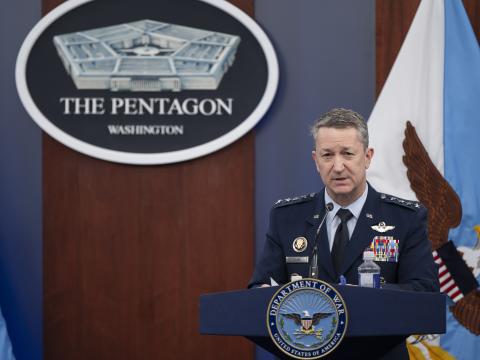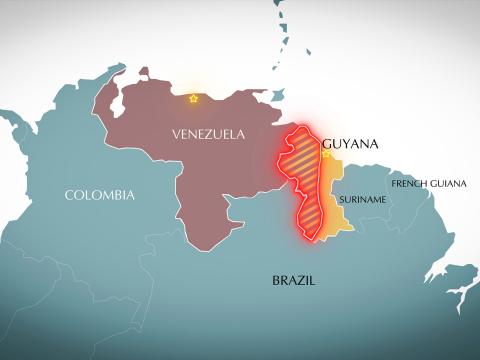President's Commentary: Ideas Become a Better Weapon
Enabling technologies such as the Internet and artificial intelligence allow more rapid and effective targeting in terms of message content and selection of recipients.
Information has long been a tool of learning, an agent of influence and a weapon of conflict dating back to Darius I and the Persian Empire. Just as Gutenberg’s printing press fueled the promotion, expansion and spread of dogma and new ideas during the Renaissance, today’s information technologies and their inherent capabilities have enabled information, disinformation and misinformation to be disseminated more rapidly to a much broader audience than ever before. Enabling technologies such as the Internet and artificial intelligence allow more rapid and effective targeting in terms of message content and selection of recipients.
Exploitation of information is a weapon-shaping human cognition. Information can be skillfully tailored to achieve national strategic, operational and even tactical objectives and can serve as the weapon of choice. Its reach crosses all religious, ethnic, social, racial, political, economic, business and national security boundaries.
Weaponized information is not revolutionary. But what is revolutionary is our ability and increased means to deliver a message and shape the information. We find ourselves again in a war of ideas where truth is elusive.
It is often difficult to measure the impact, but sources of information such as fake news, propaganda, data manipulation, deception and distortion of the truth or an event are all key factors in this weaponization. One only has to look at the varying accounts of the evening news or read assorted characterizations of a controversial event to quickly understand that information has different interpretations and varying methods of presentation tailored to diverse audiences. Without the ability to confidently separate the facts from the gray areas and lies, it is increasingly difficult to have meaningful and objective debate in developing and implementing sound public policy. It invites deception and deceit while making us vulnerable to propaganda and ill-informed decisions. The ancient Greek philosopher Diogenes is said to have roamed the streets of Athens carrying a lit candle, looking for an honest man. I wonder how he would fare today?
Our information capabilities are opening up new vistas for geopolitical, social, economic and military uses. The importance of information in military operations is acknowledged as the services restructure operational and tactical units to better leverage and integrate the full capabilities in the information domain and counter adversarial effects against our own forces.
At the operational and tactical level of military actions, information is used to exploit, deceive or even intimidate an adversary. Russian activities in Eastern Europe, the Baltics and Syria demonstrate this effectiveness. And who can forget the success of social media as a weapon in Benghazi, where it was used to rally flash mobs to attack the U.S. Consulate?
From a strategic national security perspective, information shapes planning to the degree that a conflict can be won or lost before a single battle is fought. The sources of this weaponized information take on varying faces. For Russia, it is a force multiplier for undercutting democratic ideals and processes. It helps the Russians punch above their weight. One only has to look at the impact of information weaponization against the Ukraine and other eastern European and Baltic countries. And, witness the effect of Russian influence on the U.S. national election in 2016 and the continuing concern it has brought to our electorate. The Russians are masters of this weaponization.
China uses information operations to strongly influence economic and geopolitical perceptions in its surrounding region and to monitor and control the behavior and actions of its internal population. It is building a virtual information barrier around the country using information technology to constantly monitor and analyze the actions and behaviors of its citizens while simultaneously measuring their loyalty to the communist party. They are in effect implementing “Big Brother” as in George Orwell’s dystopian novel 1984.
Closer to home, information has been weaponized to shape social and political commentary. Despite all the good that has come from social media, it has also demonstrated nefarious power to shape and/or divide public perceptions and deeply influence and polarize thinking and behavior.
Access to sensitive personal information databases facilitates the development of targeted messaging. Social media has become a high-value weapon of choice for disinformation and misinformation. It has little accountability and is increasingly distrusted, yet it remains the platform of choice for many. Unfortunately, many are indifferent to facts and the truth as long as the message fits their preferred narrative.
We need new approaches to an old problem that has been enabled, enhanced and emboldened with new technologies. It will take more than technological solutions to meet the challenge. We are once again in a war of ideas, and these weaponized ideas are more powerful than ever.




Comments